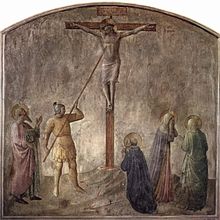A change of pace here. After an online chat this morning I got to thinking of old thoughts of my conversion from Christianity to atheism.
How quaint and archaic to see in this century otherwise intelligent and mature people debating whether the Bible supports women’s rights, gay rights, civil disobedience, war or pacificism, genetic engineering, smoking and drinking, blood transfusions and medical treatment, etc etc etc.
Don’t such debates testify our childishness (confused with childlikeness) and fear of intelligence? I don’t think everyone involved in such debates is really looking to the Bible for guidance. I suspect many have come to share the values of their communities and others and are really looking for assurance from the Bible for their prejudices or sentiments. We like the idea of having God on our side.
It’s easier to argue against those whose views we despise that way, too. No need to be too troubled by having to make truly informed decisions or researching, reflecting and constructing educative discussions and debates. Much easier to bring out the Bible and bash away at each other with our favourite proof-texts. Besides, the Bible clearly gives licence from its greatest heroes to freely engage in arrogant declamations and insults when things get a bit heated or the argument is going quite the way we want.
But what happens when people do take the Bible seriously and really do try to set it up as a guide? And what happens if those people are serious enough to be humble enough (self-negating enough) to abandon all sense of personal responsibility towards their fellow human society and decide to let “God speak to them” regardless of where it leads? Not a good idea for the mentally and emotionally unstable or for anyone who has it within them to detach themselves from their natural family and social obligations.
The whole scenario is crass immaturity. The very notion of doing right because an authority commands it is childish and fickle. What would happen if there were no Bible, no moral authority outside ourselves? The answer is all around us. We know first of all that where the Bible is taken the most seriously we find the higher incidents of domestic violence and child abuse, teen pregnancies and divorce and such. We know that where the Bible is not considered of any importance or relevance culturally in other parts of the world people do get along quite normally and healthily as societies after all. Humans are humans and by nature they have universal standards of right and wrong and social cohesiveness. It’s simply a matter of how we have evolved as social animals.
It’s hard to believe this when one is a believer, I know. When I was faced with the decision to leave God out of my life I truly had no idea where it would lead me. Would I become a murderer? Being a believer had screwed me up so much I no longer knew what it was to be human. I had feared being human. Believers are taught human nature is sinful. How liberating it was to discover people are people, good and bad, with needs and loves, and we all are just doing what we can to make the best of things. For some, perhaps many, that means putting in extra effort to help others along the way and learning to live with and control our faults.
The best part of this liberation was discovering I no longer had to live in a world divided between those in God’s camp, with my beliefs or values and authorities telling me how to live or backing me up, and the “others” out there in the camp of darkness or ignorance, the unsaved and the unwashed. The liberation was in coming to realize we are all one humanity with the same weaknesses and strengths (while not denying there are a few who really are bad news) and that we really are “one”.
The very idea of turning to a book to argue about this or that thing that we should or should not think or do or feel is so immature and symptomatic of inner fears about ourselves and others, surely. Little children need to learn that their bad dreams are nothing to be afraid of.
Related articles
- Is the Bible a Reliable Guide to Morality? [EvolutionBlog] (scienceblogs.com)
- Deconstructing biblical ethics (Hector Avalos on Atheists Talk)

